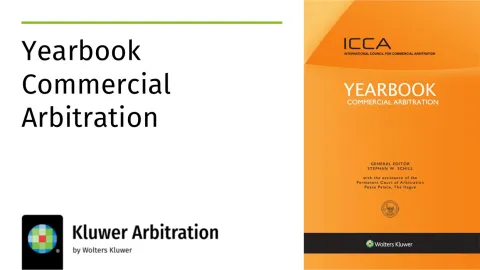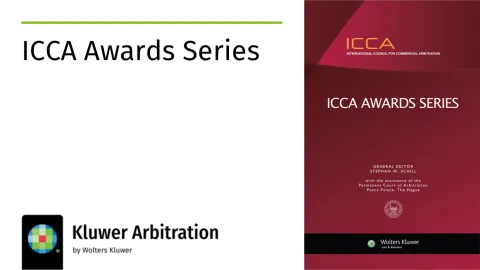Security is Not Substance: Arbitration Lessons from the Taikoo Brilliance
October 3, 2025
The English Commercial Court’s decision in Batavia Eximp & Contracting (S) Pte Ltd v Pedregal Maritime SA (The “Taikoo Brilliance”) [2025] has quickly become one of the most significant recent judgments at the intersection of arbitration, admiralty, and shipping law.
While the case has been widely discussed for its implications on deck cargo and the Hague–Visby Rules (the “Rules”), its true importance for the arbitration community lies in how the Court approached the question of whether admiralty arrest proceedings could interrupt the one-year time bar under Article III(6) of the Rules. At its core, this case is about the strict procedural discipline required when claims are subject to arbitration agreements, and how ancillary maritime remedies cannot be mistaken for substantive proceedings on the merits.
This post examines the arbitration aspects of the Taikoo Brilliance, focusing on (i) the contractual framework and arbitration agreement; (ii) the cargo interests’ strategy of arrest without arbitration; (iii) the Court’s analysis of what constitutes a “suit” under the Rules; and (iv) the broader interplay between shipping law and international arbitration.
Contractual Framework: Bills of Lading and Arbitration
The dispute arose from a shipment of timber carried on board the vessel “Taikoo Brilliance” from New Zealand to India. Four bills of lading were issued. Two contained express notations that portions of the cargo were carried on deck. Misdelivery was alleged when cargo was discharged in India without presentation of the original bills.
As is common in shipping practice, the bills of lading incorporated the terms of a charterparty, which included an arbitration clause specifying London arbitration. This meant that any substantive dispute concerning delivery, liability, or damages had to be resolved through arbitration in London rather than litigation before domestic courts.
Thus, from the outset, the procedural path was clear: the Rules applied to the carriage, and any claim by cargo interests had to be brought in arbitration within one year of delivery or scheduled delivery, unless the parties agreed to extend that time.
The Claimants’ Tactical Misstep: Arrest without Arbitration
Instead of commencing arbitration in London, the claimants—Batavia Eximp & Contracting—sought to protect their position by arresting a sister ship, the Navios Koyo, in Singapore. Admiralty arrest is a powerful procedural tool in maritime disputes: it allows a claimant to obtain security for its claim by detaining a ship linked to the defendant. However, it is not designed to determine liability. Rather, it is a measure taken for the purposes of security.
The claimants believed, or at least argued, that the act of commencing arrest proceedings sufficed as a “suit” under Article III(6) of the Rules. Their view was that because the Rules require a claim to be brought within one year, initiating arrest proceedings should interrupt that period, preserving their substantive right to arbitrate later.
But the critical omission was that they never commenced London arbitration within the one-year limit. By the time substantive steps were contemplated, the limitation period had already expired.
The Legal Question: What is a “Suit” under Article III(6) of the Rules?
Article III(6) of the Rules provides:
"... the carrier and the ship shall in any event be discharged from all liability whatsoever ... unless suit is brought within one year after delivery of the goods or the date when the goods should have been delivered."
The crux of the dispute was whether arrest proceedings in Singapore amounted to a “suit” under this provision.
The claimants argued yes: an arrest is a form of judicial process and therefore qualifies as a “suit.” The shipowner countered that “suit” refers to proceedings on the merits—that is, litigation or arbitration in which the tribunal can determine liability—not ancillary security proceedings.
The Court’s Analysis: Arbitration as the True Forum
Justice Robin Knowles of the English Commercial Court sided with the shipowner. His reasoning turned on two main points.
Firstly, the nature of arrest proceedings: admiralty arrest in Singapore was solely for the purpose of obtaining security. The arrest court does not adjudicate on liability. In fact, liability is usually determined elsewhere, often in arbitration if an arbitration clause applies. Thus, arrest was “ancillary” and not a “suit” for purposes of Article III(6).
Secondly, consistency with arbitration agreements: where bills of lading incorporate arbitration clauses, the substantive forum is arbitration. Commencing arbitration is the proper way to bring a “suit” within Article III(6). Anything less would undermine the integrity of the arbitration agreement, because parties could indefinitely delay arbitration while relying on security measures such as vessel arrests.
In short, the Court held that only the commencement of arbitration within the limitation period qualified as bringing a “suit.” Therefore, because arbitration was only commenced in December 2020, more than a year after discharge in September 2019, the claim was time-barred.
The Court’s approach in the Taikoo Brilliance is consistent with long-established authority on the commercial purpose of Article III(6). As Lord Hamblen noted in The Giant Ace [2024] UKSC 38 at [84], the aim of the one-year bar is “to achieve finality and to enable accounts and books to be closed.”
That principle derives from The Aries [1977] 1 WLR 185, where Lord Wilberforce emphasised that “to provide for the discharge of these claims after 12 months meets an obvious commercial need, namely, to allow shipowners, after that period, to clear their books.”
The same logic was reaffirmed by Bingham LJ in The Captain Gregos [1990] 3 All ER 967 at 973–974, where he observed that Article III(6), like any time bar, is intended “to achieve finality and, in this case, enable the shipowner to clear his books.”
Against this jurisprudential backdrop, the Court rejected the argument that security proceedings such as arrest could constitute a “suit.” To hold otherwise would frustrate the policy of finality, forcing shipowners to leave claims unresolved indefinitely. Commencing arbitration within the one-year limit is therefore the only way to satisfy Article III(6).
Implications for Arbitration Practice
The Taikoo Brilliance decision reinforces a strict message for arbitration practitioners and commercial parties alike.
Security is Not Substance
Admiralty arrest or attachment proceedings are useful tools to secure assets and even security for an award in case the claimant succeeds in arbitration, but they are not a substitute for commencing the substantive arbitration proceedings itself. Parties must always ensure that arbitration (or litigation, depending on the contract) is initiated within the limitation period.
Discipline in Maritime Arbitration
Shipping disputes often cross multiple jurisdictions, with security obtained in one place, proceedings in another, and enforcement elsewhere depending on the assets involved. The judgment highlights the need for disciplined sequencing: obtain security if necessary, but do not neglect to commence arbitration on time.
Interpretation of “Suit” in an Arbitration Context
The Court’s approach affirms that in arbitration agreements governed by English law, the word “suit” under Article III(6) is interpreted to mean arbitration when that is the agreed forum. This ensures consistency between the Rules and arbitration law.
Commercial Certainty
A strict limitation period brings certainty to carriers and cargo interests. Allowing ancillary proceedings like arrests to interrupt limitation would destabilize the balance struck by the Rules.
The Interplay of Shipping and Arbitration Law
The case illustrates the unique interplay between shipping law and arbitration law in several respects.
The Rules and Arbitration
The Rules impose substantive rights and obligations, but their procedural enforcement depends on the agreed dispute resolution mechanism. When arbitration is chosen, it becomes the “suit” contemplated by Article III(6).
Admiralty and Arbitration Co-Existence
Admiralty law provides security measures like arrest; arbitration provides the forum for merits. They are complementary but distinct. Confusing one for the other risks losing substantive rights.
Judicial Support for Arbitration
By holding that only arbitration proceedings interrupt time, the English Court reaffirmed its support for arbitration agreements, emphasizing that ancillary remedies should not undermine them.
Comparative Perspective
Not all jurisdictions take the same approach. Some courts might interpret “suit” more broadly. However, in London which is the global centre of maritime arbitration, the discipline of requiring arbitration to commence within the year prevails, providing predictability for international trade.
Broader Lessons for Practitioners
The arbitration aspects of The Taikoo Brilliance yield several broader lessons.
File Early
Commence arbitration as soon as possible, even if negotiations are ongoing. Extensions can be agreed, but absent that, the one-year period is unforgiving.
Security First, but not Security Alone
Arrests and attachments remain vital in ensuring respondents have assets available to satisfy awards. But they must be paired with substantive proceedings in the correct forum.
Contract Drafting
Shipowners and cargo interests should ensure clarity in arbitration clauses within bills of lading and charterparties. Clear linkage to arbitration avoids ambiguity about where “suits” must be brought.
Cross-Border Coordination
Given the global nature of shipping disputes, practitioners must coordinate between jurisdictions: arrest in one, arbitrate in another, enforce in a third.
Conclusion
The Taikoo Brilliance case is a landmark in clarifying the boundary between security measures and substantive proceedings in maritime arbitration. For the arbitration community, its message is stark: do not mistake an arrest for a suit. When contracts call for arbitration, only arbitration proceedings commenced within the limitation period will preserve claims. Admiralty arrest may provide the sword, but arbitration remains the courtroom.
By reaffirming the primacy of arbitration agreements while respecting the role of admiralty remedies, the decision contributes to commercial certainty in shipping and strengthens the predictability of arbitration as the chosen dispute resolution mechanism. In a world where shipping disputes traverse continents and involve multiple legal regimes, The Taikoo Brilliance offers a reminder that procedural discipline is not optional, rather it is the cornerstone of effective arbitration.
You may also like










